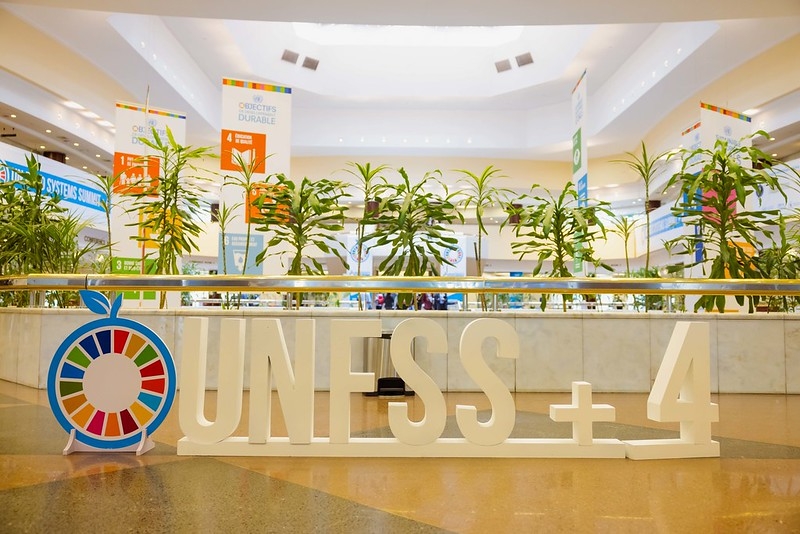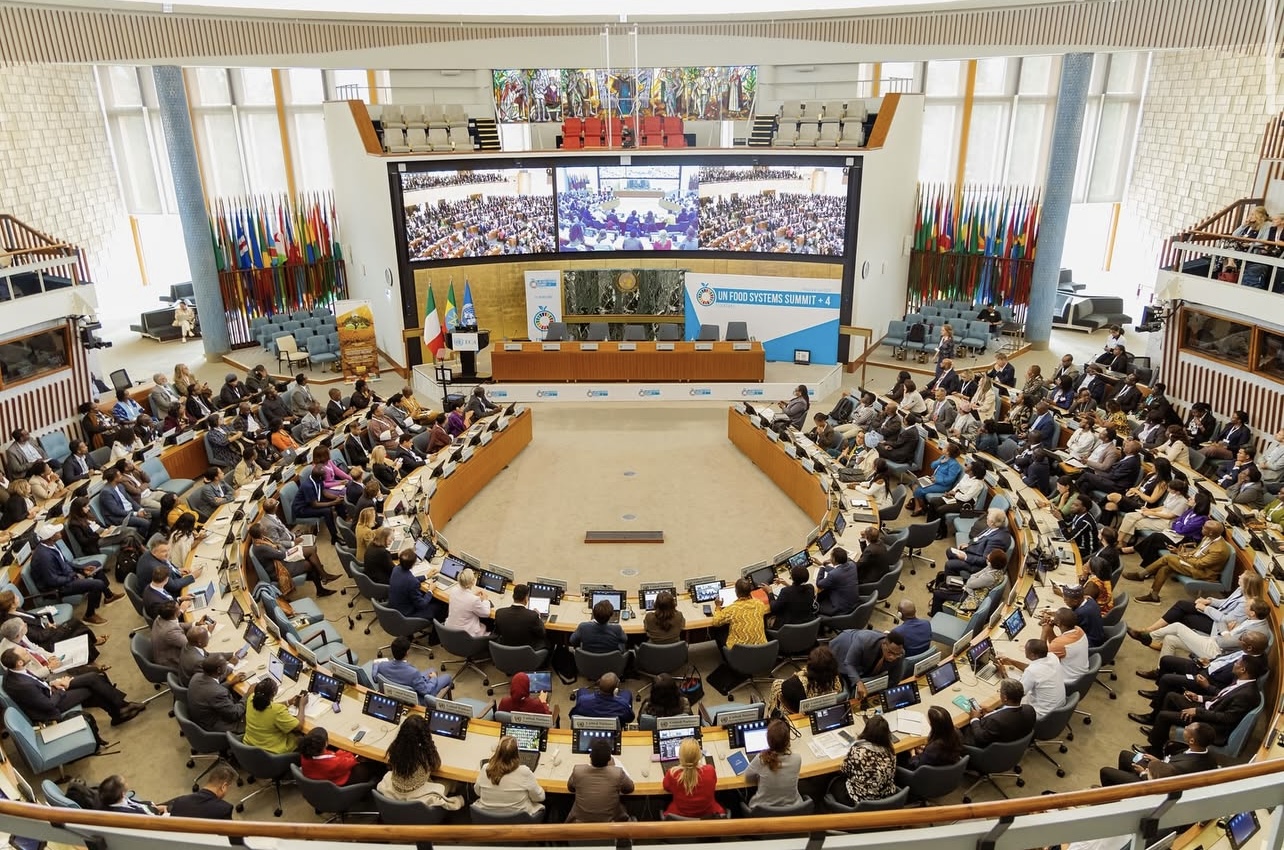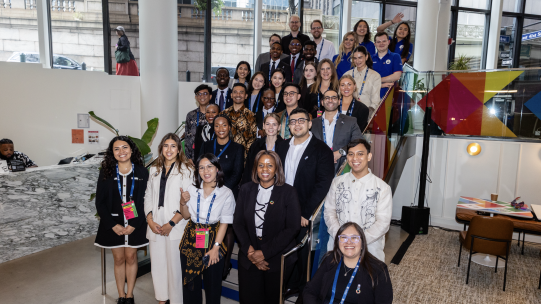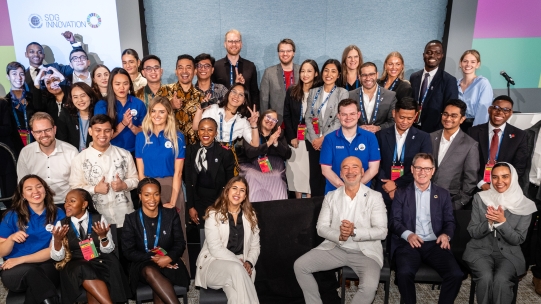UNFSS+4 Stocktake: A convening for action, accountability and acceleration
Read more

The UN Food Systems Summit (UNFSS+4) concluded in Addis Ababa with a renewed call for urgency, global solidarity and accountability.
Held under the joint leadership of Ethiopia and Italy, the Summit gathered world leaders, multilateral institutions, civil society, youth, farmers, Indigenous Peoples, the private sector and many other stakeholders. The event marked a critical midpoint in the Decade of Action, specifically reaffirming the urgency of pushing towards the Sustainable Development Goals (SDGs) and incorporation of food systems into the 2030 Agenda for Sustainable Development, anchoring the Summit firmly within the mission of the UN Global Compact—to mobilize responsible business for a better world.
Across plenary discussions, roundtables, high-level panels, investment dialogues and small and medium-sized enterprise (SME)-led pitches, participants assessed progress since the 2021 Summit and spotlighted pathways to transform commitments into measurable outcomes.
With input from the Secretary-General, sessions examined how to integrate food systems strategies into policies, bolster inclusive governance, scale science and innovation and increase access to sustainable finance. Throughout the Summit, corporate accountability and private sector alignment with Environmental, Social and Governance (ESG) principles were consistent themes.
Key takeaways and strategic outcomes:
- Reflecting on progress: Sessions on healthy diets, resilience in complex settings and science-driven innovation illustrated how countries are adopting rights-based, nutrition-sensitive and climate-aligned strategies, highlighting the multilateral nature of the SDGs.
- Unlocking finance and investments: Building on the Financing for Development Conference (FfD4) outcomes, UNFSS+4 elevated the dialogue on public-private partnerships and investment frameworks that support small and medium enterprises (SMEs) and the stakes for farmers, a key focus in the Africa Hall discussions at the event. Led by the UN Global Compact and other partners, investment dialogues emphasized responsible capital flows and value chain equity.
- Tracking commitments and partnerships: The Summit fostered a stronger accountability architecture. Through presentations, pitch sessions and stakeholder-led actions, emphasis was placed on data transparency, peer learning and bottom-up innovations that reflect today's reality. The call for corporate responsibility featured prominently in business-focused sessions.
Engaging Businesses: The UNFSS+4 plays a central role in mobilizing the private sector. Investors, financial institutions, development banks and corporate partners must act to advance the transformation of food systems. Throughout the Summit, events like Investment Dialogues, matchmaking sessions and SME-led pitch events fostered innovation and collaborative partnerships for action across sustainable food systems.

Business and investment: Stepping up
In collaboration with the UN Global Compact, the private sector demonstrated increasing alignment with the SDGs and food systems goals. SMEs from diverse regions pitched investable, impact-driven solutions, while multinationals and financiers joined dialogues on reshaping food environments and fostering inclusive, green value chains.
The UNFSS+4 Stocktake reasserted that business as usual is not an option. The Summit voiced the need for collaborative governance, driven by shared responsibility and values, aligned with the Ten Principles of the UN Global Compact. Across all sessions, the clear link between food systems and global stability was emphasized by foundational goals.
The Summit culminated with a call to action by the UN Secretary-General, outlining commitments to be monitored through 2027 and integrated into broader multilateral agendas, including COP30, SDG Stocktakes and future UN Global Compact Leaders Summits.
Looking ahead: From stocktaking to scaling up
With just five years remaining to achieve the SDGs, UNFSS+4 served as a nexus to reflect, course-correct and co-create. As an invitation to actors to embrace transparency, inclusivity and transformative ambition, the event was a complete success.
As emphasized throughout the Stocktake, food systems are levers for systemic change. The path to 2030 must be paved with integrated actions, smart investments and a united front for sustainable development.


